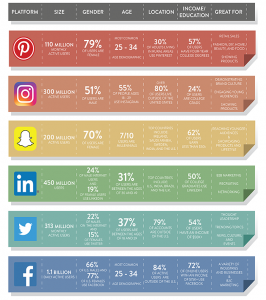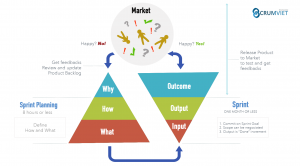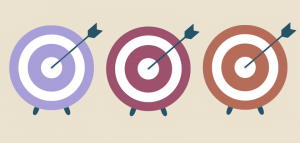Yes, you can train yourself to be happier—just be aware of the downsides
Research shows that happier people live longer and do better work. You can pursue happiness, but you need to be mindful of several important things.
Is there a day on the calendar that isn’t significant for some sort of recognition? From pizza to hotdogs, pets to cousins, the “International Day of fill-in-the-blank” populates each square of the 365 that mark the year.
And so it was for happiness. March 20, in case you missed it, marked that highly sought quality that the U.S. forefathers cited as one of three inalienable rights in the Declaration of Independence. As such, the pursuit of happiness has become a holy grail in work and life. Why shouldn’t we be happy? Or happier, if we have a right to be?
Of course, philosophers, sages, scientists, and business leaders have each tried to detail prescriptive measures to reach greater happiness. That’s because copious amounts of research point to the fact that happy people live longer.
It has an impact on working life, too. Citing research from a study conducted by the Saïd Business School, Jade Green argued that happiness should be a new performance indicator. “Happiness can have a significant impact on productivity. Results showed that happier workers were 12% more productive than their unhappy counterparts,” she wrote. “This boost in productivity can be attributed to various factors, such as increased motivation, engagement, and creativity.” The study additionally revealed that fewer mistakes were made by happier workers.
On the flip side, unhappy employees might suffer long-term health effects. That goes for the youngest members of the workforce. As Fast Company’s Jared Lindzon wrote, “A study conducted by researchers at Ohio State University found that those who are dissatisfied with their jobs in their twenties and thirties were more likely to have problems with sleep, anxiety, and depression later in life.”
So it’s up to us—and to some degree, our leaders—to make an effort to boost overall happiness. (It also helps to work for a company that already has a positive and engaged workforce.) Let’s dive in to the steps we can take on the path to get happier—and a bit of cautionary advice.
Be intentional
Designer and self-professed happiness practitioner Klaus Heesch detailed in a Fast Company essay that he approaches happiness as a practice, like meditation. “For me, practicing intentional happiness is liberating in that I can be aware of—but less concerned with—what might hold me back. And instead, I can focus on what strengthens me and brings joy,” he wrote.
Be able to let go
Researcher Christopher Boyce, who has spent years studying happiness, suggests similarly that you shouldn’t tie certain achievements as the route to joy. “Goals can be helpful. They give direction in our day-to-day lives. But it’s easy to get wrapped up in attaining an outcome, believing our happiness depends on it,” he wrote. The important thing is to be able to let go if things don’t work out, Boyce noted.
Embrace small moments
Alexa von Tobel adds what she learned from Harvard’s Happiness Lab to this concept by focusing on simple rituals that make daily life brighter. “You aim to have great outcomes, from closing a dream partnership or landing a big hire, but those outcomes do not drive fulfillment,” she wrote. “It’s all of the many small moments with your team or checking things off your to-do list that make us happy.”
Question your pursuit
Fast Company contributor Jenna Abdou confesses that happiness, and the potential to cultivate it, has been her compass since childhood. But it wasn’t until she had a conversation with author and physician Dr. Gabor Maté that she understood how achieving happiness might be the wrong goal. “Dr. Maté not only taught me that wholeness inspires human flourishing. He revealed a blindspot in how I approached it,” she wrote. “In decades of pursuing how to cultivate happiness, I never stopped to ask what makes us unhappy. Moreover, I wasn’t willing to feel it.”

For most of us, challenges in life and work can make us unhappy (see aforementioned pursuit of goals). For Abdou, another conversation with Elizabeth Lesser, author of Broken Open, illuminated a perspective that she finds helpful. As Lesser advised: “When things get hard in my life, I say to myself: Open, open, open. Stay open. Ask what wants to be born.”
Pursue wonder
In an interview with Monica C. Parker, author of The Power of Wonder, Stephanie Vozza reported that the pursuit of happiness can backfire—making us decidedly unhappy. That’s why Parker suggests not shying away from negative emotions. “They are a way to broaden our emotional vocabulary, which helps us call up a greater variety of coping skills,” she said. “In fact, people with higher emotional granularity—or emodiversity—use more positive coping mechanisms and recover more quickly from stress.”
Rather than blindly pursuing positivity and joy, Parker told Vozza that chasing wonder, as defined by curiosity and awe, can create a significant shift. One way is to become aware of what is novel. “The brain notices newness,” said Parker. “When we are exposed to something new, we study the details of it more closely. So, the more that we can introduce novelty into our mind, the more that we will notice the wonder that exists in it.”
Define it for yourself
Jenn Lim, cofounder of Delivering Happiness, says that science aside, there is one critical ingredient to true happiness. “That’s where your own subjective definition of happiness gets defined by you, for you,” she wrote. “Mixing the art of your authentic self with science gives the most important definition of them all . . . because it’s yours and only yours.” That, said Lim, in her book, Beyond Happiness, is the secret to the most enduring form of joy.
ABOUT THE AUTHOR
(11)
Report Post






